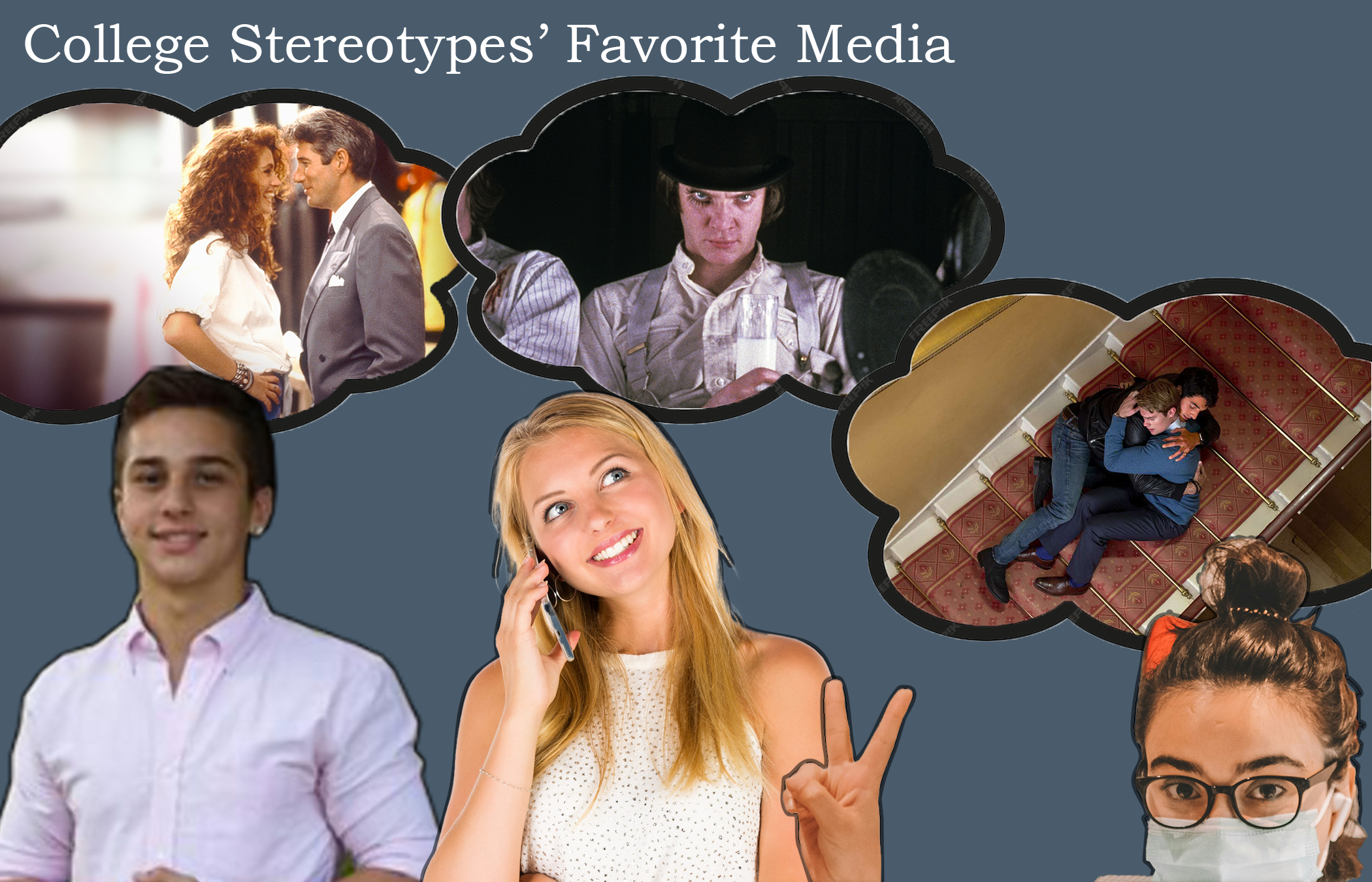
Your college years are considered a time to experiment and discover who you really are. The thing is, no matter what unique experiences you think you have, there are thousands of students across the country who go through similar things.
These universal experiences create stereotypes. Think of a few common ones: business majors coloring inside the lines for homework, music students begging for spare change, maybe even student journalists having no dating life. Whatever type of collegiate sucker pops into your mind, try to think about what kind of books they read or movies they watch.
To get started, here are three stereotypes and their favorite tropes. If you fall into any of these stereotypes, don’t worry; a piece of media is included to help you understand your new reality.
Frat boys: Fake dating
After a tough go of daydrinking and hauling a JBL speaker across campus, frat boys get back to the house and settle into a good fake dating story. It’s all the frat boy could hope for: companionship and sex from a beautiful girl without all that commitment crap.
Guarding the gates of fake dating is the 1990 rom-com “Pretty Woman.” Powerful, handsome yet reserved Edward (Richard Gere) needs a New York City girlfriend to attend fancy events with, and who could be better than the beautiful, independent Vivian (Julia Roberts).
Seeing that Vivian is a prostitute, it’s a simple transaction between the two, much to the joy of the frat boy. Alas, most stories end with the leads falling in love, and the reality of that has yet to be determined.
Freshman year roommate: Unreliable narrator
Everyone has a story about THAT roommate. But when they tell the story, some of the details don’t add up. You didn’t do laundry for weeks; they did. You didn’t leave dishes everywhere; they did. Your roommate is an unreliable narrator.
One of the best, and admittedly strangest, examples of the phenomenon is the dystopian novella turned film “A Clockwork Orange.” Arguably, Alex (Malcolm McDowell) tells his story with the utmost truth. However, can we trust the words of a sociopathic, traumatized teenager? Even further, the American version of the book removes the final chapter where Alex considers no longer being a horrible, violent person. So what is the truth?
This wishy-washy storytelling feeds directly into the freshman year roommate’s psyche, allowing them to believe they did nothing wrong.
The only girl in your engineering class: Enemies-to-lovers
Perhaps the most modern stereotype paired with the most timeless trope, a woman in STEM hopes to find a lovable, charming boy who regularly takes showers. Instead, she’s confronted by a bunch of manchildren trying to bully her out of the line for the laser cutter.
One day, though, she has a heated argument with a particularly classless classmate, and millions of people across the globe scream, “Just kiss already!” A shockwave of enemies-to-lovers just devoured the world.
If that sounds interesting, there are millions of stories about people and supernatural beings of all genders, sexualities, races and endowments. From classics like “Pride and Prejudice” to more modern pieces like “Red, White & Royal Blue,” there is an enemy for everyone to love.

